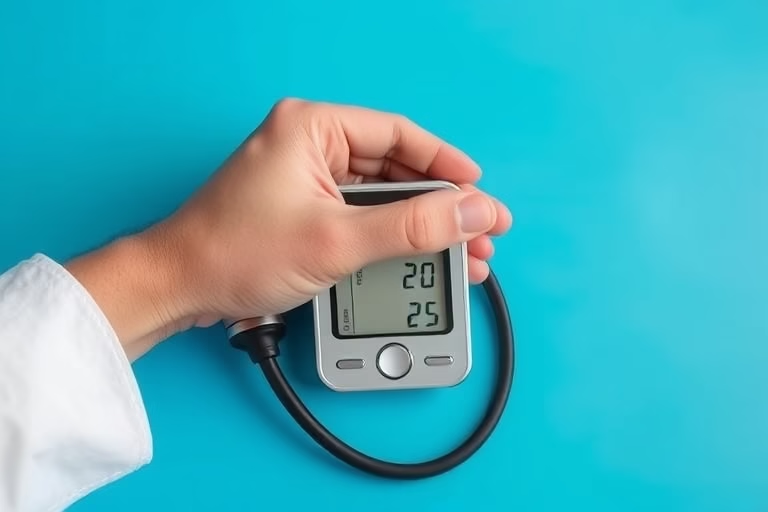In this article, we will be talking about whether blood pressure is higher when sick. Understanding the relationship between illness and blood pressure is important as it can help people monitor their health more effectively. Blood pressure refers to the force with which blood pushes against the walls of the arteries. When you are unwell, your body can react in various ways, which may influence blood pressure. Factors like stress, inflammation, pain, and medication can play significant roles in elevating or lowering blood pressure when one is sick.
It is essential to understand that an increase in blood pressure may be influenced by several conditions, including infections, chronic illnesses, or acute events like fever. These fluctuations in blood pressure can lead to complications if not monitored appropriately. Therefore, recognizing how being sick can affect blood pressure is crucial for anyone looking to maintain their health.
1. Understanding Blood Pressure and Its Measurements
Blood pressure is a vital sign and is typically measured in millimeters of mercury (mmHg). It consists of two readings: systolic (the pressure when the heart beats) and diastolic (the pressure when the heart rests between beats). Normal blood pressure is considered to be around 120/80 mmHg. When discussing if blood pressure increases when sick, it is essential to comprehend how various factors, including age, stress, and overall health status, can impact these readings.
2. Common Illnesses and Their Effect on Blood Pressure
Several illnesses are known to impact blood pressure readings. For example, infections can trigger a stress response in the body, releasing hormones that elevate blood pressure. Conditions like the flu, colds, and even chronic illnesses, such as diabetes or kidney disease, can lead to fluctuations in blood pressure. Understanding how these conditions affect your body can help in managing and monitoring your blood pressure effectively.
3. The Role of Stress and Anxiety
When you are sick, it is common to experience stress and anxiety, which can further raise blood pressure. Stress triggers the release of cortisol and adrenaline, hormones that can constrict blood vessels and lead to temporary spikes in blood pressure. People with pre-existing hypertension may experience even more pronounced increases, making stress management crucial during illness.
4. Medication and Its Impact
Certain medications, like pain relievers or decongestants, can also lead to increased blood pressure. It’s important to be mindful of the medications being taken during sickness and to consult healthcare professionals regarding how these may affect blood pressure. For those with chronic hypertension, this information is particularly important.
5. Fever and Its Link to Blood Pressure
Fever is a common symptom of many illnesses, and it can influence blood pressure. When you have a fever, your body’s metabolic rate increases, which can elevate heart rate and consequently blood pressure. Monitoring these changes, particularly in individuals with pre-existing conditions, is crucial for effective management.
6. Lifestyle Factors and Recovery
Maintaining a healthy lifestyle can help manage blood pressure during illness. Important aspects include a balanced diet, hydration, and adequate rest. These factors play a role in recovery and overall blood pressure stability. Staying mindful of your dietary choices, especially during sickness, can prevent unnecessary spikes in blood pressure.
7. When to Seek Medical Attention
It is crucial to know when to seek medical attention during sickness. If blood pressure readings are consistently higher than normal, or if accompanied by other concerning symptoms, it’s important to consult with a healthcare professional. They can provide effective management strategies and ensure proper care.
8. Monitoring Blood Pressure at Home
For those who already have hypertension or are prone to elevated blood pressure, home monitoring can provide valuable insights. Knowing how to measure your blood pressure accurately using a home blood pressure monitor can help you track any significant changes during sickness and inform your healthcare provider about your condition.
9. Long-Term Implications of Blood Pressure Changes During Illness
Understanding the long-term implications of blood pressure changes during illness is critical. Chronic high blood pressure can lead to serious complications over time, such as heart disease and stroke. Recognizing temporary spikes during illness is necessary, but individuals should also focus on long-term management of blood pressure through lifestyle changes and regular check-ups.
10. Importance of Regular Health Check-Ups
Regular health check-ups are essential for monitoring blood pressure and overall health. These appointments can help detect any potential issues before they become serious, ensuring timely intervention and treatment. Discussing any fluctuations in blood pressure with your healthcare provider during these visits is essential for comprehensive care.
In summary, the question of whether blood pressure is higher when sick has various dimensions. Understanding the changes in blood pressure during illness is vital for managing overall health. Blood pressure can fluctuate due to many factors including stress, medications, fever, and lifestyle choices. Monitoring these changes and being proactive in health management can lead to better outcomes, especially for those with pre-existing conditions. Overall, staying informed and seeking timely medical advice can significantly enhance health during times of illness.
Frequently Asked Questions
1. Does blood pressure always increase when I am sick?
No, blood pressure does not always increase when you are sick, but it can be influenced by various factors such as infections and stress responses.
2. How can I lower my blood pressure when I am sick?
Staying hydrated, managing stress, resting, and following medical guidance can help lower blood pressure during illness.
3. Should I stop taking my blood pressure medication when I am sick?
Always consult your healthcare provider before making changes to medication, even during illness.
4. What are the signs of high blood pressure during sickness?
Signs may include headaches, dizziness, and blurred vision. Consistent monitoring can help recognize changes.
5. How often should I monitor my blood pressure when sick?
It is advisable to monitor your blood pressure as recommended by your healthcare provider, especially if you have a history of hypertension.
Further Reading
What Type of Psychotherapy Is Best for Anxiety?







